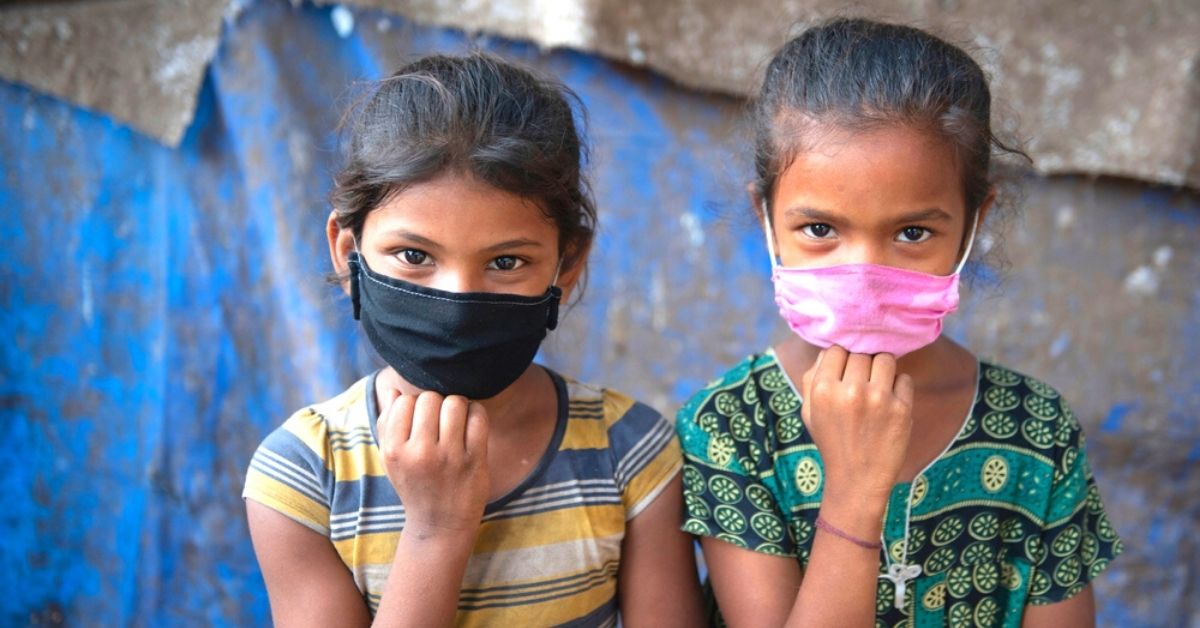This article is a part of a series by The Better India to share verified information about COVID-19 care. While several posts on various aspects of fighting COVID-19 are being circulated on social media and messaging services like WhatsApp, we urge you not to trust unverified content. To separate fact from fiction, we will be sharing the videos and content with doctors and experts and bring you their responses with scientific research-backed information.
There is no doubt that the second wave of the novel coronavirus hit India hard. The overwhelmed healthcare system left hospitals struggling to cope with the number of new admissions everyday along with a severe shortage of critical drugs and oxygen supply and new cases of different fungal infections that cropped up as side effects in COVID-19 positive patients.
Reports are now emerging about a mutated strain of the virus, referred to as Delta or the B.1.617.2. It has spread to more than 60 countries over the past six months. Given its higher rates of transmission compared with other variants, and its resistance to the vaccines, it is imperative to understand the impact of this strain.
Dr Pinank Pandya, Consultant Critical Care, Jaslok Hospital and Research Centre and Dr Vikas Maurya, Director and Head, Pulmonology Fortis Hospital, Shalimar Bagh, Delhi, help us understand this better.
What is the Delta strain?
Dr Pandya: By virtue of being a virus the SARS-COV-2 or COVID-19 keeps mutating. Recently, we have seen the B.1.617, that is the US strain and B.117 that is the UK strain. Of this, the US strain has mutated further into two strains. The second variant, indigenous to India, is being referred to as B.1.617.2 or Delta strain.
Dr Maurya: What is important to note is that this strain is virulent and highly transmissible.
Are the symptoms associated with this strain any different from the earlier strain?
Dr Pandya: Yes, because this strain is highly virulent, we are noticing newer symptoms as well. Cases of hearing loss from patients in King Edward Memorial Hospital in Mumbai and cases of peripheral gangrene are also being reported. Loss of limbs is also being associated with this new strain. Increased instances of bowel gangrene are also being seen. In such cases, the patients will require surgical intervention and they still might lose a fair share of their intestines.
A major cause of concern has to do with this strain impacting a large number of younger and paediatric patients.
Are children at higher risk of contracting this strain?

Dr Maurya: This is very difficult to comment on given the available data. What we do know is that this strain is highly transmissible and therefore is affecting a larger number of the population rather quickly. For example, in Delhi and Maharashtra, where this strain was found, the number of active cases was rapidly increasing.
What is the vaccine efficacy against this strain?
Dr Pandya: This strain has now moved to Melbourne in Australia, where a fourth lockdown has been imposed. The good news, however, is that the AstraZeneca vaccine is showing 33 per cent efficacy against the Delta strain with one shot and more than 60 per cent efficacy with both shots.
Pfizer has shown 88 per cent efficacy against the Delta strain. No matter what the vaccine is, it is imperative that you get your shot as soon as you are eligible. More variants are yet to come and staying cautious and following all COVID protocols is most important.
(Edited by Yoshita Rao)
No comments:
Post a Comment